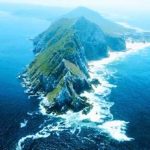It would seem clear that Cataluña will, by one means or another, free herself from Spain, of which she has always been an integral part. All the signs are there; Catalan politicians speak in Catalan on national TV, so the rest of the nation must either know Catalan, or remain ignorant of what is being said. The President of Cataluña, Mr Artur Más, talks of his region being ‘a nation within a nation’, as if that were possible. At meetings of Spanish regional leaders you can be sure of his absence. There are weekly demonstrations in Barcelona and other key cities designed to show that all Catalan peoples support the idea of unilateral independence – that is to say, total independence without consulting or listening to the national government in Madrid. Catalans speaking with persons from other nations – such as Spain – claim the national government steals from Catalan pockets. Let us examine what happened some nearly fifty years ago in Africa, when a British colony decided to break the chains with Britain, rather in the style of thirteen American colonies across the Atlantic two hundred years before.
The Rhodesia Crisis was a series of events that began with a declaration from her Prime Minister Ian Smith, a white Rhodesian who fought (and been decorated) for Britain in the Second War. On 11 November, 1965, he made a Unilateral Declaration of Independence. His government in Rhodesia had failed utterly in its discussions with successive British administrations, mainly because of Smith’s insistence of white supremacy. He was conservative enough to place the white man in Rhodesia in permanent control, with black people a secondary consideration. The British governments had not agreed.
After the U.D.I., the government in London gained United Nations support against the rebels, but ruled out the use of force. History teaches that trying to suppress rebellions by force means bloodletting on a massive scale, and for once a government decided against.
Smith and British PM Wilson (Labour) met twice, in 1966 and 1968, on a ship in neutral waters but discussion was useless. To Wilson U.D.I. meant the loss of one of Britain’s most valued adjuncts, and he feared what would happen to Rhodesia and her peoples after the inevitable disappearance of Smith.
Discussions continued with the new PM Edward Heath (Tory) in 1971, and they reached a frail agreement, broken when an independently-mounted fact-finding mission discovered little in it would be acceptable to the black population.
Meanwhile elsewhere on the huge continent the ‘winds of change’ (Harold Macmillan’s expression) were blowing hard. The African National Congress party was moving from strength to strength, and would eventually rule South Africa. The Portuguese had withdrawn with unseemly haste from Mozambique and Angola. Smith realised his isolated situation and announced in 1977 that he was willing to enter into new ‘talks’ on a one-man, one-vote basis. African leaders Sithole and Nkomo had been imprisoned but were released. At first, however, these two refused to participate in any agreements. Terrorist activities continued and worsened, even after Smith attained an internal settlement in 1978 which provided (at last) for a multiracial government in Rhodesia, under the moderate Ndabaningi Sithole and the not-so-moderate Bishop Muzorewa. Then, for Rhodesians, the roof fell in just as Harold Wilson had predicted. Rhodesia was independent yes, but the 1980 elections were resoundingly won by the former Marxist guerrilla leader Robert Mugabe.
Nobody needs to be reminded of what happened with Mugabe in power. Poor blacks became poverty-stricken blacks; black government officials took over formerly white-owned ranches, farms and industries, mostly by force. A force of secret police was established which became as cruel and terrifying as Haiti’s Tontons Macoute. Murder took the place of talks.
No one can doubt Ian Smith’s original good intentions, though they were inclined towards permanent white supremacy; but he led his country into ‘The Heart of Darkness’, and Rhodesia has yet to come out of it.













Leave A Comment